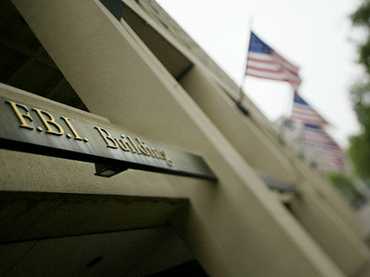 Santre Gayle Police were said to be shocked at the killer’s tender age
Santre Gayle Police were said to be shocked at the killer’s tender age
Two people have been convicted of the murder of a young woman who was shot dead at point blank range and died in her mother’s arms.
Detectives were shocked to learn her killer was a 15-year-old schoolboy, who was paid only £200.
When the young mother was shot dead on the eve of her son’s ninth birthday detectives were initially baffled.
Gulistan Subasi, 26, lived in Turkey but had returned to London to see her son, who was living with relatives of her estranged husband.
Fortunately a CCTV camera had caught the killing on camera.
The footage shows Santre Sanchez Gayle ringing the doorbell and waiting calmly and patiently for Ms Subasi to open the door before blasting her from point blank range with a sawn-off shotgun.
Off camera she collapsed and died in the arms of her mother, Dondu.
Hooded and hiding his face from the camera, the assassin gave the impression of being an experienced professional hitman.
Which is why Det Ch Insp Jackie Sebire and her team were so shocked when they discovered he was a schoolboy.
She said: “When we saw the CCTV we all thought it was a professional hitman. There was no hesitation and he shows no nerves. It did not look like a 15-year-old boy.”
A minicab driver who unwittingly took the killer to and from the crime scene in Clapton, east London, later testified that Gayle appeared totally normal when he got back into the taxi.
We absolutely did not have a clue. We were at a dead end”
Det Insp Andy Chalmers said they were aware Ms Subasi was estranged from the father of her son, Serdar Ozbek.
Det Insp Chalmers said: “We absolutely did not have a clue. We were at a dead end.”
The teenager bragged about the killing to friends in Willesden, north-west London, and it was this loose talk which unlocked the case.
Izak Billy, 21, a member of the Kensal Green Boys (KGB) gang in north-west London, had been threatening to kill a teenager called Ryan Hatunga.
Mr Hatunga told police that Billy – a drug dealer with the street name Iceman – had threatened to shoot him because he knew about the murder of “a Turkish woman”.
Mr Hatunga made a statement that the killer had confessed to carrying out the shooting, said they had been taken there by taxi and that a security grille covered the door of the victim’s flat.
Gulistan Subasi Gulistan Subasi died almost instantly after answering the door of her mother’s flat
Det Insp Chalmers said: “When I heard about the grille I knew only the killer could have known about that. We had never revealed that.”
In a second statement Mr Hatunga said the killer had told him his wages for the murder had been just £200.
But Det Insp Chalmers said: “I think he thought he was going to get more money for it.
“But my gut feeling is that the money was an element but there must have been a lot of peer pressure, kudos, an attempt to impress older members of the gang.”
He said of the killer: “He is not a very bright lad. He did not have good schooling or much parental control.
“He was easily manipulated. In many ways he himself is a victim.”
Ms Subasi, who was due to get married in Turkey that summer, had mentioned regaining custody of her son. This was said in court to have been the motive.
Calls from Turkey
Det Ch Insp Sebire said it took a lot of detective work to fit the pieces together.
They examined hundreds of mobile phone records, eventually focussing on a flurry of calls in the days running up to the murder.
Izak Billy was said to have been contacted from Turkey.
“That call is the contract being put out on Gulistan and within hours Billy has spoken to [the killer] and he is on his way over to do a recce,” says Det Insp Chalmers.
Billy, understood to have received £2,000 for his part in the contract killing, arranged for the killer to be shown the flat and may have obtained the murder weapon.
At 2020 GMT on 22 March 2010 there was a knock on the door of the home in Clapton.
CCTV of killing Gayle was seen on CCTV aiming the gun
In a witness statement Ms Subasi’s mother later said: “I said, ‘No, daughter, we don’t know who is at the door, I will answer the door’.
“But she didn’t listen to me.”
Det Insp Chalmers said he believed Ms Subasi might have opened the door because she hoped it might be someone bringing her son to see her on the eve of his birthday.
She had bought him a present and was desperate to see him.
After working out the conspiracy the police eventually rounded up their suspects.
Now, nearly a year later, they can file it away as “case solved”.
Ozbek was cleared of murder, as were Paul Nicalaou, 29, of Tottenham and Leigh Bryan, 25, of Hornsey.
Billy, 22, of Willesden, was found guilty.
via BBC News – How schoolboy hitman Santre Gayle murdered for £200.



